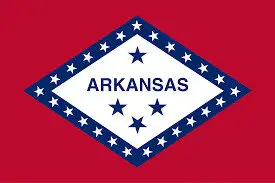Utah Wills vs. Trusts
Navigating Utah estate planning doesn’t have to be overwhelming. Whether you’re considering a will or trust, understanding the key differences can save your family significant time, money, and stress. This comprehensive guide breaks down Utah’s unique laws to help you make the right choice for your legacy.
Table of Contents
US Map For The Different Will and Trust Requirements by State
Interested in other state’s law regarding wills and trusts? Click the ABOVE state you want to be taken to.
Utah Will Requirements
A Utah Last Will and Testament should include:
- Age and Capacity: Testator must be at least 18 years old and of sound mind (§75-2-501)
- Format: Must be in writing (typed or handwritten)
- Signature: Must be signed by the testator or by another person at the testator’s direction in their presence
- Witnesses: Must be signed by at least two witnesses (14+ years old) who must sign within a reasonable time after witnessing the testator’s acknowledgment (§75-2-502)
Alternative Signing Options
Utah law permits the testator to direct another person to sign the testator’s name on their behalf. If this option is used:
- The signing must occur in the testator’s presence
- The person signing must indicate they are signing on behalf of the testator
Interested Witnesses
Utah does not explicitly void bequests to witnesses who sign the will, though it’s generally advisable to use disinterested witnesses to avoid potential challenges.
Self-Proved Wills
A notarized affidavit can make a will self-proved, avoiding witness testimony in probate (§75-2-504). This affidavit:
- Can be executed at the time of signing
- Can be added later with the testator and witnesses appearing before a notary
- Serves to establish the will’s validity during probate without requiring witness testimony
Incorporation by Reference
Utah law permits reference to external documents in a will if they are identified in the will and exist at the time of execution (§75-2-511).
Memorandum for Personal Property
Utah does not have explicit statutory provisions for personal property memorandums; further legal guidance is recommended for this approach.
THE ULTIMATE FREE DOWNLOAD
The Estate Planners Tactical Guide
Essential Legal Protection for Achievers

Amendment, Revision, and Revocation of Utah Wills
Revoking a Utah Will
Utah wills can be revoked in whole or in part through:
- Execution of a later will that revokes the previous will either expressly or by inconsistency
- Physical destruction of the will with intent to revoke, such as by burning, tearing, canceling, or obliterating
- Revocation by operation of law, specifically divorce, which revokes provisions for ex-spouses (§75-2-507)
Automatic Revocation by Divorce
In Utah, divorce automatically revokes any provisions for an ex-spouse in a will created before the divorce. This includes bequests, appointments as executor, or other powers (§75-2-507).
After-Born/Omitted Children
Pretermitted heirs (children born or adopted after will execution) receive an intestate share unless the will explicitly disinherits them. Utah’s intestacy laws grant children equal shares if not provided for in the will.
Need help creating the right estate plan for your Utah family?
Our estate planning specialists can help you navigate Utah’s unique laws and create a personalized strategy.
Holographic and Oral Wills
Holographic Wills
Utah recognizes holographic wills as valid if the material provisions and signature are in the testator’s handwriting (§75-2-502(2)). No witnesses are required for holographic wills in Utah.
Oral Wills
Oral (nuncupative) wills are not recognized as valid in Utah.
Utah Trust Requirements
Trusts in Utah are principally governed by the Utah Uniform Trust Code (Title 75, Chapter 7).
Requirements for a Valid Utah Trust
For a trust to be valid under Utah law:
- The settlor must have the same capacity as required for making a will (§75-7-401)
- The trust must have lawful purposes that are not contrary to public policy
- The trust must have identifiable beneficiaries (with exceptions for charitable, pet, or non-charitable purpose trusts)
- The trustee must have duties to perform
Utah law assumes that trusts are revocable by default unless stated otherwise in the trust document.
Trustee Responsibilities
Trustees who manage assets must follow the “prudent investor rule” unless modified by the trust terms (§75-7-901). This standard requires:
- Careful investment decisions considering the entire portfolio
- Risk and return objectives reasonably suited to the trust
- Diversification of investments unless special circumstances dictate otherwise
Trust Creation Methods
Utah trusts can come into existence through:
- Transfer of property to a trustee during life
- Declaration that the settlor holds identified property as trustee
- Transfer of property at death through a will or other instrument
- Exercising a power of appointment in favor of a trustee
Oral Trusts
Oral trusts are valid in Utah if proven by clear and convincing evidence (§75-7-407), though written trust documents are strongly preferred for clarity and enforceability.
Spendthrift Provisions and Creditor Protection
Utah trust law recognizes spendthrift provisions that protect trust assets from beneficiary creditors until distribution (§75-7-502). These provisions:
- Restrict voluntary and involuntary transfers of a beneficiary’s interest
- Prevent most creditors from attaching trust assets until distributed
- Can be included in both revocable and irrevocable trusts
Trust Termination
Utah trusts terminate upon:
- Revocation or expiration according to trust terms
- Fulfillment of trust purposes
- When purposes become unlawful, impossible, or contrary to public policy
- By court order under specific circumstances
Special Considerations
Estate Taxes
Utah imposes no state estate or inheritance tax. Federal estate tax applies to estates exceeding $13.99 million (2025).
Simplified Probate Options
Utah law provides several alternatives to full probate administration:
Small Estates Procedure
Eligibility:
- Estates valued at $100,000 or less can use an affidavit to bypass probate (§75-3-1201)
Process:
- Successors can file an affidavit 30 days after death
- The affidavit states the claimant’s right to receive assets
- No court filing is required
No Administration Required
No administration is required if the estate value is within statutory allowances for spouses and minor children.
Non-Probate Transfers
Utah offers multiple options for transferring assets outside of probate:
TOD Deeds and Vehicle Titles
Utah allows transfer-on-death designations for both real estate and vehicles, a unique combination not found in many states. These instruments:
- Are created during the owner’s lifetime
- Transfer ownership automatically at death
- Avoid probate for these specific assets
- Can be changed or revoked during the owner’s lifetime
Need help creating the right estate plan for your Utah family?
Our estate planning specialists can help you navigate Utah’s unique laws and create a personalized strategy.
Wills vs. Trusts: Comparison
| Feature | Wills | Trusts |
|---|---|---|
| When It Takes Effect | After death | Immediate (living trusts) or at death |
| Probate Process | Required | Avoided if fully funded |
| Privacy | Public record | Private |
| Challenges | Easier to contest | Difficult to contest |
| Cost to Create | Lower upfront cost | Higher upfront cost |
| Ongoing Administration | None until death | Requires funding and management |
| Protection During Incapacity | Requires separate power of attorney | Trustee manages assets |
| Alternative Transfer Methods | TOD deeds for real estate and vehicles | Not needed if properly funded |
When It Takes Effect
Wills: After death
Trusts: Immediate (living trusts) or at death
Probate Process
Wills: Required
Trusts: Avoided if fully funded
Privacy
Wills: Public record
Trusts: Private
Challenges
Wills: Easier to contest
Trusts: Difficult to contest
Cost to Create
Wills: Lower upfront cost
Trusts: Higher upfront cost
Ongoing Administration
Wills: None until death
Trusts: Requires funding and management
Protection During Incapacity
Wills: Requires separate power of attorney
Trusts: Trustee manages assets
Alternative Transfer Methods
Wills: TOD deeds for real estate and vehicles
Trusts: Not needed if properly funded
Frequently Asked Questions
Do I need a lawyer to create a will in Utah?
No, but complex estates benefit from legal guidance to avoid errors and ensure your will meets all statutory requirements.
What if I die without a will in Utah?
Utah’s intestacy laws distribute assets to spouses, children, or closest relatives according to a predetermined formula that may not match your wishes.
Are handwritten wills valid in Utah?
Yes, holographic wills are valid if the material provisions and signature are in the testator’s handwriting (§75-2-502(2)). No witnesses are required for holographic wills.
What’s unique about Utah’s TOD deeds?
Utah allows TOD designations for both real estate and vehicles, a rare combination that provides flexible non-probate transfer options.
How are children protected from disinheritance in Utah?
Pretermitted (after-born or omitted) heirs receive an intestate share unless explicitly disinherited in the will.
What’s unique about Utah’s spousal elective share?
The share percentage depends on marriage duration: 1/3 if married less than 3 years; full estate if married 3+ years with no children.
Can a trust avoid probate in Utah?
Yes, if properly funded and managed, a trust can completely avoid the probate process for assets it contains.
What is Utah’s small estate procedure?
Estates valued at $100,000 or less can use an affidavit for quick asset transfer (§75-3-1201), bypassing formal probate.
Conclusion
Creating a will or trust in Utah does not have to be difficult or intimidating. However, certain circumstances—like second marriages, stepchildren, aging parents, special needs beneficiaries, guardianships, and business interests—can add complexity and result in unforeseen consequences. Whenever any out-of-the-ordinary issues are present, it’s advisable to consult with an experienced attorney familiar with Utah’s specific laws.
Ready to Protect Your Family’s Future?
Join the thousands of Utah families who have secured their legacy with our personalized estate planning strategies. Our approach helps you avoid probate, protect assets, and ensure your wishes are carried out exactly as you intend.
- ✓ Avoid costly probate and family disputes
- ✓ Maintain privacy of your financial matters
- ✓ Protect assets during incapacity
- ✓ Create safeguards for children and loved ones
Explore Estate Planning Strategies
Free consultation with our estate planning specialists
THE ULTIMATE FREE DOWNLOAD
The Estate Planners Tactical Guide
Essential Legal Protection for Achievers






